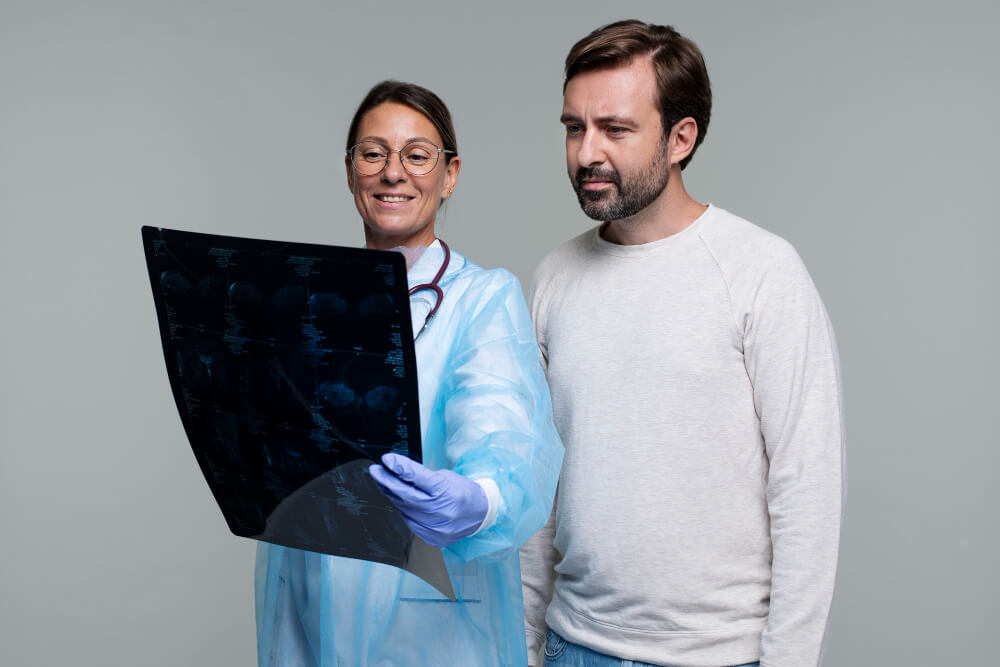Finding Relief from Back Pain: The Role of Spine Specialists
The human spine is a marvel of engineering, providing support, flexibility, and structure for our bodies. However, this complex structure is also susceptible to pain and dysfunction. Back pain is one of the most common musculoskeletal complaints, with studies suggesting that up to 80% of adults will experience back pain at some point in their lives.
While there are various self-care measures and medications that can offer temporary relief for some individuals, persistent or severe back pain might require a more specialized approach. This is where spine specialists, also known as back doctors, come in.
Understanding Back Pain
Back pain can manifest in a variety of ways, with varying intensities and locations. Here’s an overview of some common types:
Lower Back Pain
- Lumbar Strain: This is the most common type of back pain, often caused by overuse, improper lifting techniques, or poor posture. Symptoms may include a dull ache, stiffness, and difficulty bending or twisting.
- Herniated Disc: When the soft cushions between the vertebrae bulge or rupture, it can put pressure on nearby nerves, causing pain, numbness, and weakness that may radiate down the leg (sciatica).
- Spinal Stenosis: This narrowing of the spinal canal can compress nerves, leading to pain, numbness, tingling, and weakness in the legs, especially when walking.
Upper Back Pain
- Thoracic Strain: Similar to lumbar strain, this pain in the upper back can be caused by overuse, poor posture, or muscle tension.
- Cervical Spondylosis: Age-related wear and tear of the discs and joints in the neck can sometimes cause upper back pain, along with neck stiffness and headaches.
- Postural Kyphosis: This excessive rounding of the upper spine can lead to upper back pain and discomfort.
Potential Causes of Back Pain
There are numerous factors that can contribute to back pain, including:
- Muscle Strain or Sprain: Overuse, improper lifting techniques, or poor posture can strain or sprain the muscles and ligaments in the back.
- Degenerative Disc Disease: As we age, the discs between the vertebrae can wear down, leading to pain and stiffness.
- Arthritis: Inflammation of the joints in the spine can cause pain, stiffness, and reduced mobility.
- Trauma: Injuries like falls, car accidents, or sports injuries can damage muscles, ligaments, bones, and discs in the back.
- Poor Posture: Sitting for extended periods, slouching, or hunching can put undue stress on the spine, leading to pain.
- Obesity: Excess weight puts extra strain on the spine and can contribute to back pain.
How Can a Spine Specialist Help with Back Pain?
Spine specialists, also known as back doctors, are medical professionals with extensive training and expertise in diagnosing and treating conditions affecting the spine. They can help you find relief from back pain by:
- Performing a thorough physical examination: This includes assessing your range of motion, strength, and any neurological symptoms.
- Reviewing your medical history and imaging tests: X-rays, MRI scans, or CT scans can help pinpoint the cause of your pain.
- Developing a personalized treatment plan: This may include non-surgical treatments like physical therapy, medication management, injections, or lifestyle modifications.
- Performing surgery, if necessary: In some cases, surgery might be the most appropriate solution, such as disc repair, spinal fusion, or decompression surgery to relieve pressure on nerves.
Benefits of Seeing a Spine Specialist for Back Pain
There are several advantages to seeking care from a spine specialist for persistent or severe back pain:
- Accurate Diagnosis: A spine specialist can accurately identify the underlying cause of your pain, ensuring you receive the most effective treatment.
- Comprehensive Treatment Options: They offer a full spectrum of treatment options, from conservative non-surgical approaches to minimally invasive procedures or surgery, tailored to your individual needs.
- Pain Relief: The goal of treatment is to alleviate pain and improve your overall health condition.


